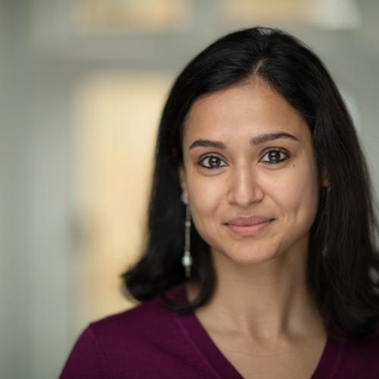In 2004, I entered a fascinating world of critical thinking on the first floor of Morgan Hall. I felt encouraged to ask questions. I asked questions about international debt and growing orchids in Prof. Moledina’s office. I asked Prof. Warner how I could factor in politics in some of his development models. I asked Prof. Jim Burnell why the many theories of urban agglomeration didn’t help me make sense of my city Kolkata. They listened, they responded, and they asked me questions in return. I have carried on asking questions, thanks largely to the training that began at Wooster.

Morgan was my haven; the Wooster outside of it was usually confusing but, in the end, a place where I found some deep friendships, the outstanding beauty of foliage in the Fall, and Bob Evans! My independent study senior thesis looked at how low-income households in Kagera, Tanzania allocated resources in light of a member suffering from a catastrophic illness. It involved spending many evenings with boxed-up Lowry food in the computer lab, and a stunning amount of cussing at the toxic relationship between Mac’s and the econometric package STATA. Most importantly, when trying to understand almost anything about ‘development’, my thesis experience taught me the importance of looking beyond the numbers and taking the history and politics of a region seriously.
After graduating, I worked for J-PAL South Asia as a field researcher for 3 years. It was my Wooster mentors who advised me to apply for a research position instead of plunging into a PhD right after college. For me, that was a critical steer in the right direction!
After a stimulating few years of research on evaluating policy interventions in India, I started post-graduate work at the University of Oxford in 2011. I also worked as a researcher at Oxford’s Poverty & Human Development Initiative (OPHI). During my graduate work, I was invited to return to Wooster as part of TedX-Wooster event. During this event I guest lecture in classes, met with current students and also gave a keynote address.
A masters and doctorate later, I was hired as a Department lecturer at the Department of International Development at Oxford. In 2022, I accepted a lecturer position at the University of Bath in the Department of Social and Policy Science. My current research looks at the political economy of land transitions and rural work in Western India. I analyse how politics mediates economic transitions in rural areas where industrialisation has been ‘late to arrive’.
Wooster was an important part of my journey into academia. I strive to bring dedication to teaching – the type that I benefited from at Wooster.
Postscript: Dr Chatterjee was awarded tenure in Economics at the University of Bath in 2025! Congratulations!